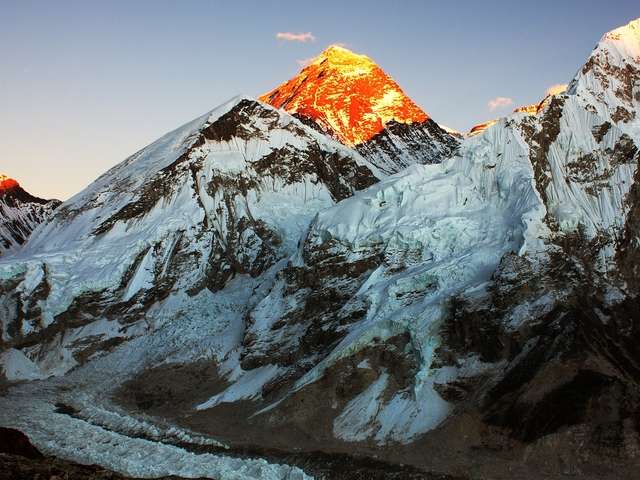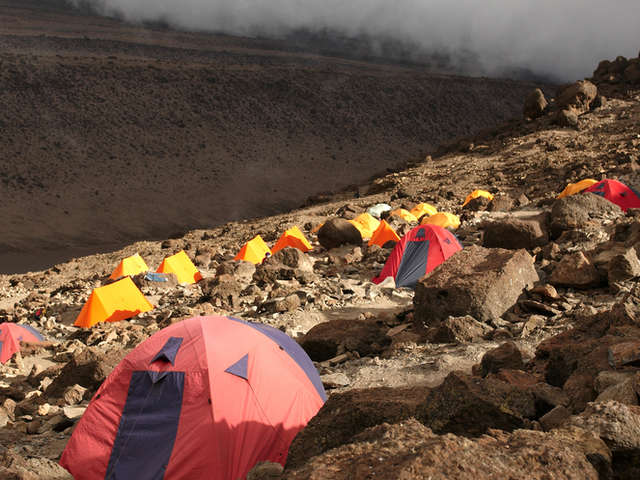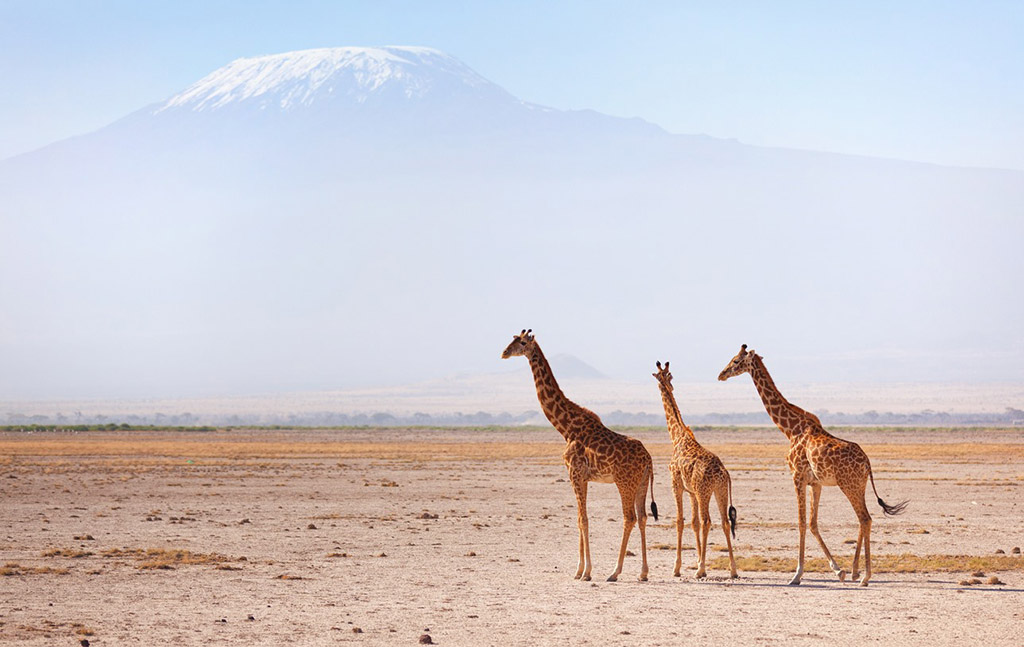Update September 5th, 2022:
Chile and Argentina have both reopened for travel. Please check the entry requirements for each country below.
If you’re planning a trek in Patagonia please plan for the following covid related procedures.

Al hacer trekking en el Parque Nacional Torres del Paine, puedes optar entre el Circuito O y el W, tanto con guía o sin él. A diferencia de otros destinos famosos de trekking, aquí los excursionistas tienen la libertad de elegir.
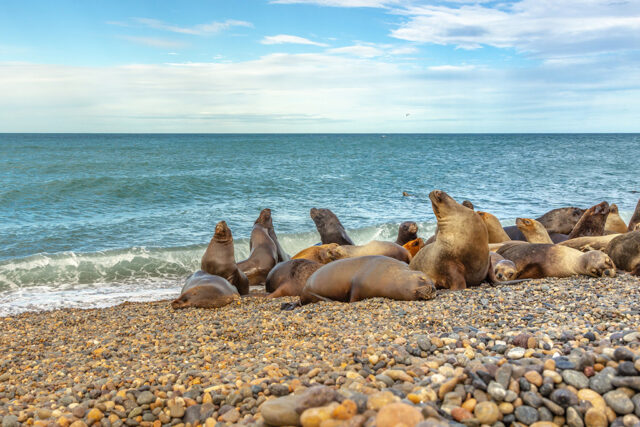
No zoophile can resist the thrall of the unique wildlife of Patagonia. With over 500 animal species, the animal lover in you will be screaming in delight at the otherworldly species that only an environment as wild, harsh and untamed as Patagonia will create. Here you can find a cornucopia of flightless birds, mountain lions and cats, small fluffy mammals and those with natural armored plates. Not to mention the abundance of sea life, many of which migrate to Patagonia seasonally to lay their eggs, birth their pups or simply to wave their fins hello as they pass by.
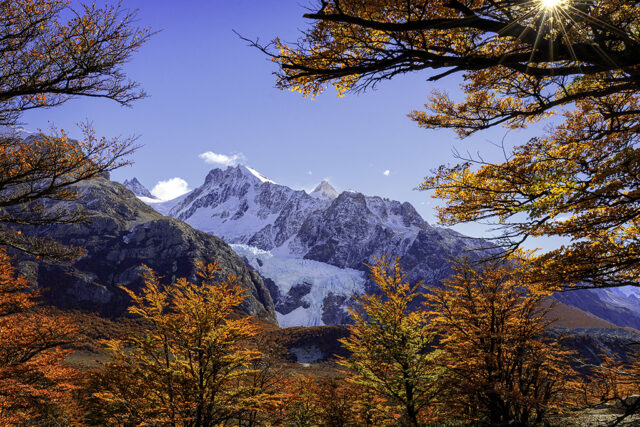
If you’ve ever stumbled upon snapshots of Patagonia’s dramatic peaks and valleys online then you might have found yourself immediately pulling up flight schedules in the tab over. However, before you can book your trip it’s paramount that you first find the dates that cater to your adventuring interests. Are you headed to the world’s most southerly national parks to trek, ski, fly fish, or a combination of everything? Here’s a month by month overview of the best months to go depending on your preferred vacation. If you have questions, don’t hesitate to contact our adventure consultants to discuss details.
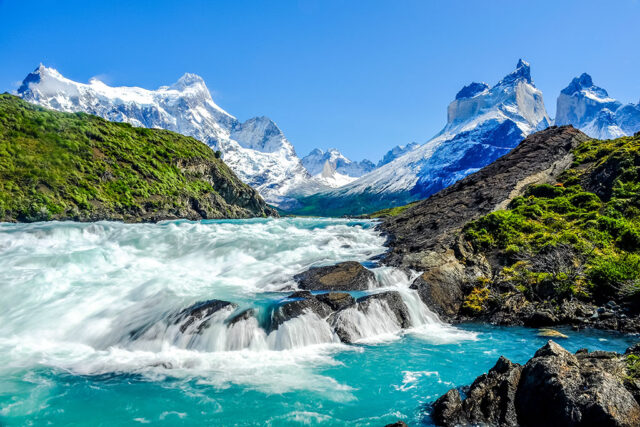
Patagonia’s untamed frontier is too big for most to see all in one trip so to maximise time spent adventuring, we suggest focusing on Southern Patagonia. With everything from horseback riding to river rafting, visiting penguins colonies to canoeing through icebergs, Southern Patagonia is an adventurer’s wildest dream. In Patagonia’s heartland there are a magnitude of postcard worthy national parks and protected biospheres to explore across both Argentina and Chile.
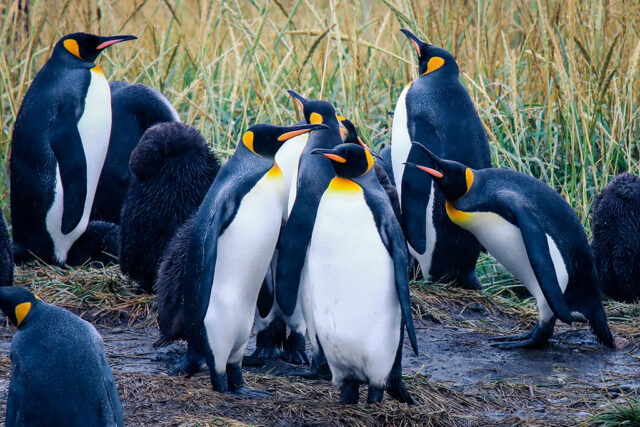
Seeing penguins in the wild is an unforgettable experience and Patagonia, the southern tip of South America, is one of the best places to view them. From Magellanic, Humboldt, Gentoo, Southern Rockhoppers, to King Penguins, Chile and Argentina have them all. There are even more penguins in Patagonia than humans! You can view these adorable creatures in massive colonies at Tierra del Fuego, Punta Arenas, and Puerto Madryn.
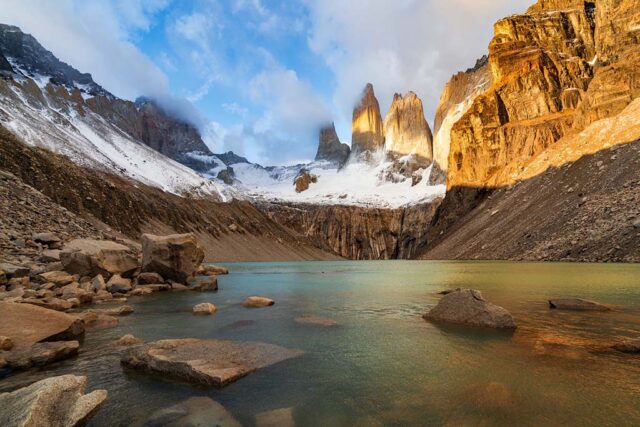
Patagonia is a region of dramatic natural beauty, from glaciated mountainscapes to vast Andean steppes. To visit Patagonia is to fall in love with this distant and mysterious land.
It is famously rugged, breathtakingly beautiful and largely untouched by man. The ‘End of the World’ is one of the most exciting places in the world to explore; it has everything from penguin colonies and whale watching to some of the best treks on the planet. Here are the top reasons to visit Patagonia!
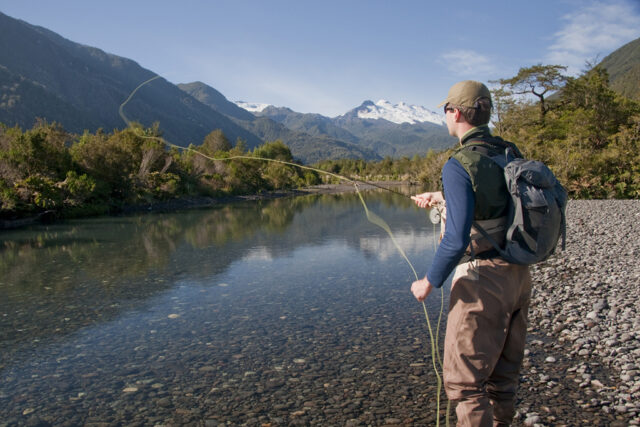
Saying “We went fly fishing in Patagonia!” never gets old. If you think you can take your eyes off the breathtaking scenery long enough to learn the craft or perfect your casting technique then we’ve got all the information you need to get you started. Read on to learn more about the prime spots in Patagonia, the ideal time of year and ultimately how to best experience the lakelands. In short order we’ll have you placing your fly in just the right seam with as close to a drag free drift as you can muster.
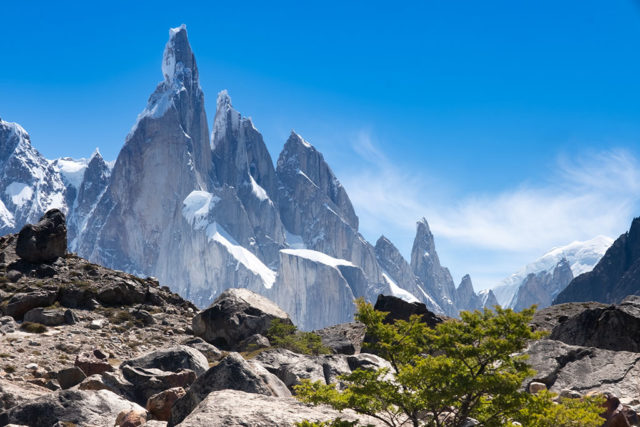
El Chalten, often called the “National Capital of Trekking” offers the most scenic trails in all of Patagonia. This area of exceptional beauty is home to the glorious peaks Monte Fitzroy and Cerro Torre, numerous milky glacial lakes, rushing waterfalls and expansive woodlands. Immerse yourself in the unspoiled nature of Los Glaciares National Park to see why this region is recognized internationally for its natural beauty.
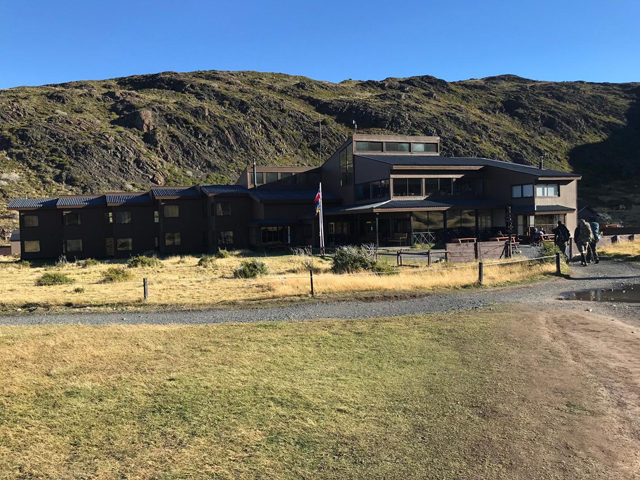
The Patagonia Region is one of the most sought after trekking destinations in the world. Nestled in a very remote location in the southern part of South America, more and more visitors are finding it easier to make the journey to see the “8th Wonder of the World”. As you can imagine, with over 250,000 visitors a year, the limited number of accommodations during the main summer trekking season fill up very fast. The park authorities are strict, and once the lodges and campsites are fully booked, they will not allow any additional trekkers to sleep inside of the national park. With this in mind, it’s important to know when to book and how far in advance you would need to plan your trip. .
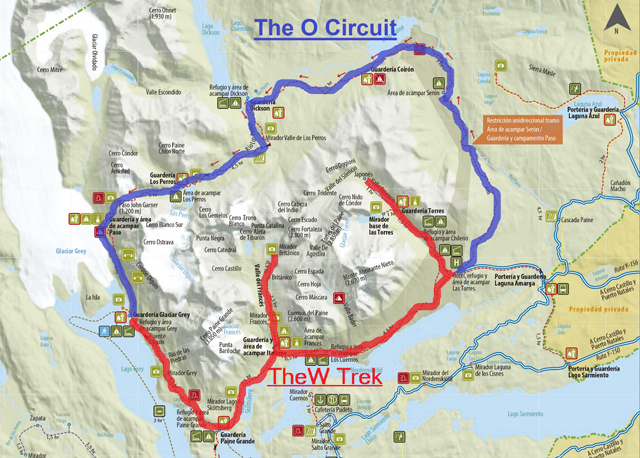
After deciding to trek in Torres del Paine your next step is to decide which trek to do, the W Trek or the O Circuit. This blog will explore the similarities and difference between the two treks so that you can choose which one is the best fit for your Patagonian adventure.
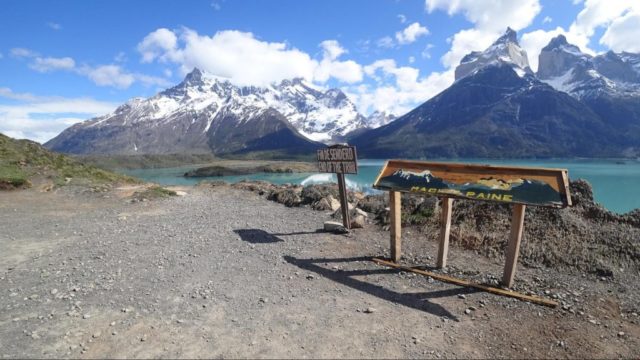
One of the most frequently asked questions that is asked about trekking in Patagonia is the style of accommodation on the trails, so we thought that we would break down exactly what to expect.
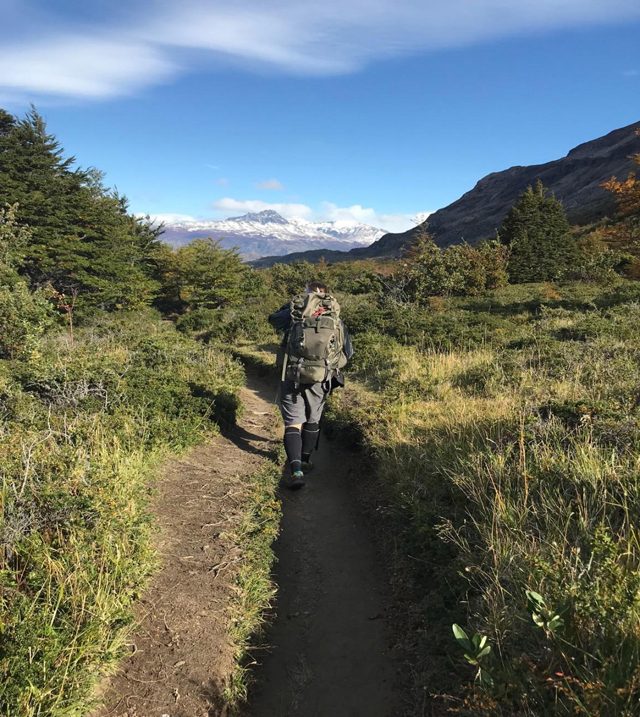
While trekking in Torres del Paine is not particularly strenuous, we do suggest you take some time to prepare yourself physically so that you have an enjoyable trek. A little preparation goes a long way. For the Classic W Trek, you will trek about 5 to 8 hours a day. For the O Circuit, you can count on trekking anywhere between 4 to 10 hours a day. Fortunately, Torres del Paine provides low altitude treks so there is no need to worry about altitude sickness. The trails are relatively flat, but can be steep in some areas.
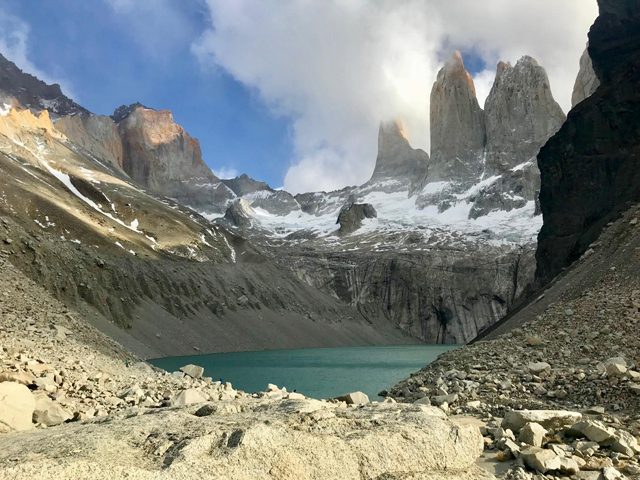
What should I pack? Did I pack too little? Did I pack too much? These are questions that swim through our heads while preparing for any trek and here is what you need to have in mind for trekking in Torres del Paine. It’s important that while you are packing for your trip, you remember that you will be the one carrying your own backpack. A 35 – 40 liter rucksack should provide you with the right amount of space to carry what you will need for the W trek and 40 – 45 liter for the O Circuit. Be careful not to over-pack, because lugging around a heavy backpack could make your Patagonian adventure a lot less enjoyable.

When trekking in Torres del Paine National Park you can choose to do both the O Circuit and the W Trek either with or without a guide. Unlike other famous trekking destinations, trekkers have the freedom to choose. When choosing between the guided and self-guided options we recommend thinking about what sort of experience you want to have on your trek.








